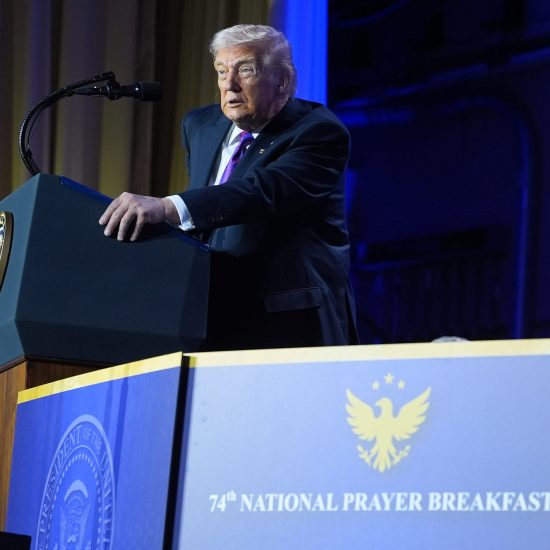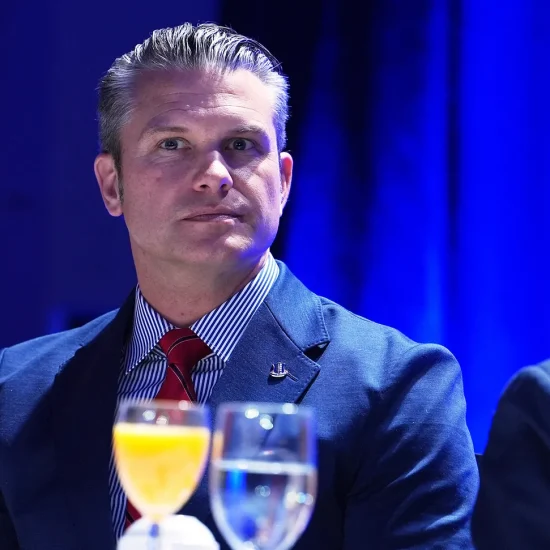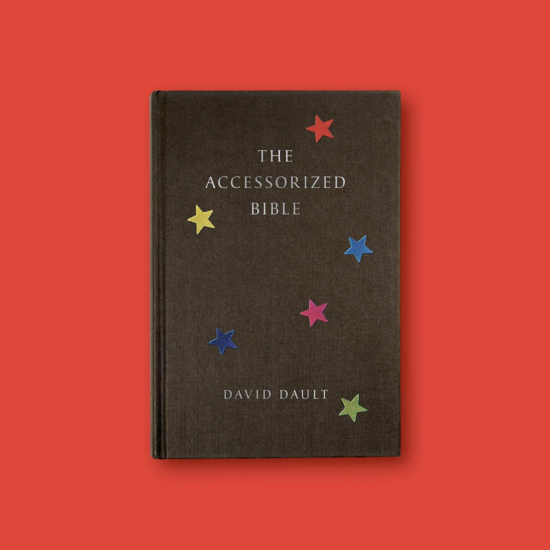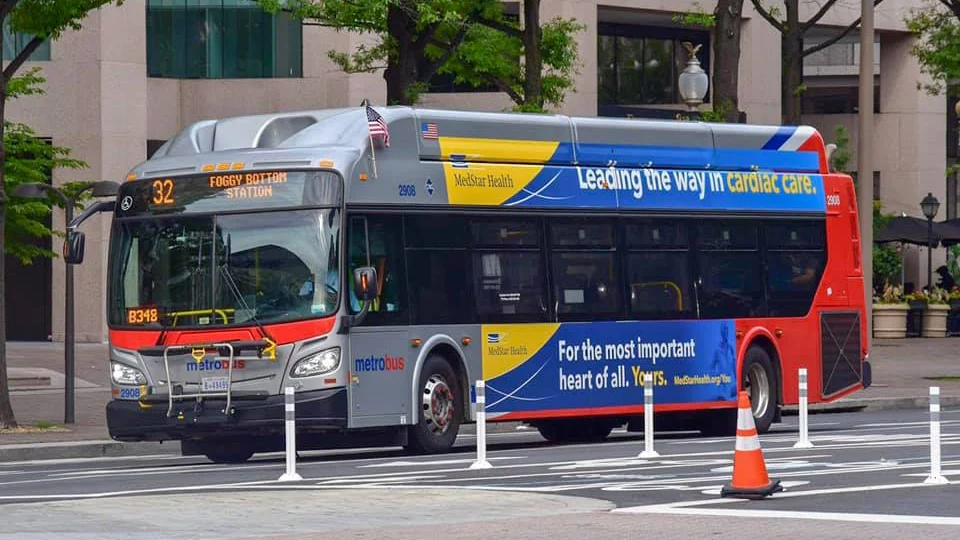
(RNS) — The American Civil Liberties Union filed a lawsuit in a U.S. District Court against the Washington Metropolitan Area Transit Authority for refusing to display ads for a religious group, claiming they violate the agency’s advertisement guidelines.
The ACLU said the agency’s advertisement policy discriminated against certain opinions and violated the First Amendment, according to the complaint filed Tuesday (Dec. 12).
“We don’t understand why there should be a ban on religious advertisements. Religion is, after all, a point of view about the world,” said Arthur Spitzer, senior counsel at ACLU.
This summer, the religious nonprofit WallBuilders sought to display ads on the city’s buses. The campaign included four ads revisiting paintings of American history’s foundational moments, inviting the public to visit the WallBuilders website to learn more about their religious significance.
One ad showed Henry Brueckner’s painting of George Washington kneeling to pray at Valley Forge; a message in bold white letters at the bottom asked: “Christian? To find out about the faith of our founders, go to WallBuilders.com.” Another ad used the painting “Signing of the Constitution” by Howard Chandler Christy, adding a QR code to WallBuilders’ website at the bottom right corner and including the organization’s logo.
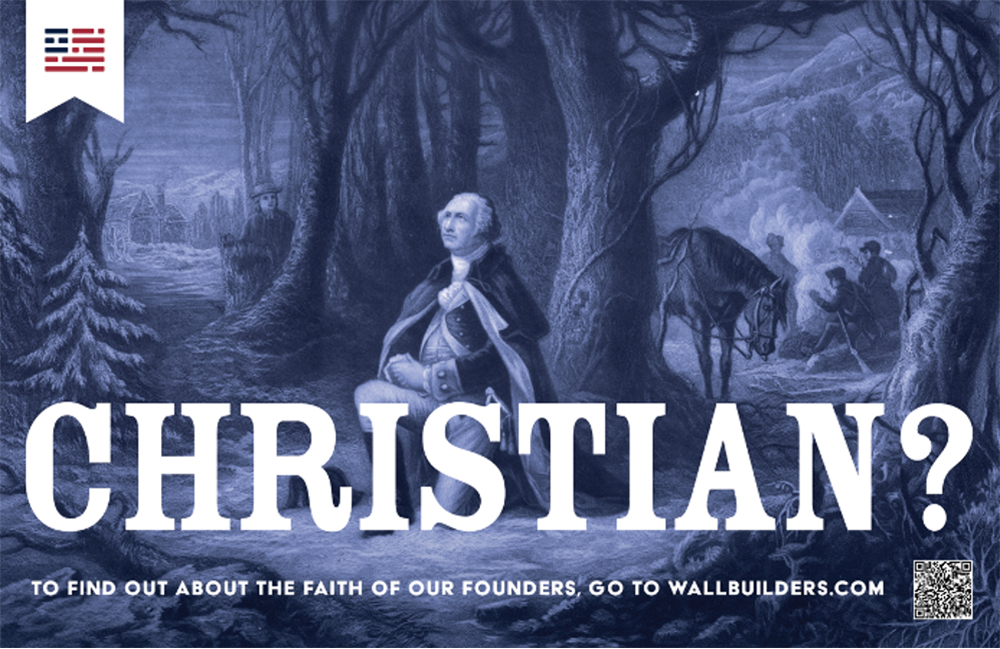
One of the rejected ads in WallBuilders v. WMATA. (Courtesy image)
The WMATA claimed the ads violated resolutions No. 9 and No. 12 of its guidelines on commercial advertising. The two recommendations prohibit the display of ads that “influence members of the public regarding an issue on which there are varying opinions” and “promote or oppose any religion, religious practice or belief.”
Although the organization’s religious beliefs are clearly stated on its website, the ads didn’t express any religious views, claimed ACLU’s Spitzer.
The Texas-based nonprofit believes the Founding Fathers never intended to separate the church from the state and wanted to create a Christian nation. Its website presents the group as a “national pro-family organization” and offers to revisit the “moral, religious, and constitutional foundations” of American history.
David Barton, named one of the nation’s 25 most influential evangelicals in 2005 by Time magazine, founded the organization in 1989. Barton is the author of “The Jefferson Lies,” a book that purports to debunk myths about Thomas Jefferson. In the book’s abstract, the Founding Father is described as “a man who revered Jesus, a classical Renaissance man and a man whose pioneering stand for liberty and God-given inalienable rights fostered a better world for this nation and its posterity.”
The book became a bestseller but was pulled from distribution by its publisher after historians debunked numerous details in it.
His son, Tim Barton, now runs the organization.
The nonprofit is represented by the ACLU, the First Liberty Institute, and the Steptoe law firm.
The ACLU and First Liberty Institute have represented clients on opposite sides several times in the past, noted Spitzer. The two organizations collaborated in this suit to show the court it was not a “partisan issue, but really an issue of free speech for everybody,” he said.
The plaintiffs denounced what they called a double standard in the agency’s ad guidelines, saying it has authorized ads on controversial issues in the past despite its policy. They pointed to ads run in 2017 by the transit agency for the Broadway musical “The Book of Mormon,” a satirical play about Mormon culture, and to ads run for the Brennan Center for Justice demanding limits on Supreme Court terms.
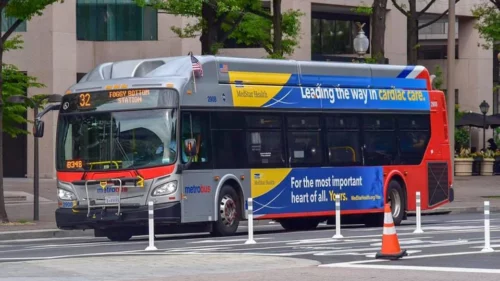
A WMATA Metrobus. (Photo courtesy of Wikipedia/Creative Commons)
Since 2015, the transit agency has amended its ad policy to ban political, religious, and advocacy ads. The decision was a response to an ad campaign by the American Freedom Defense Initiative that was judged Islamophobic. The cartoon ad showed Prophet Muhammad wearing a turban and waving a sword while claiming, “You can’t draw me,” to which an artist was depicted replying, “That’s why I draw you!”
Since then, the agency has been involved in numerous litigations. In 2017, the ACLU filed a lawsuit on behalf of itself, Carafem, Milo Yiannopoulos, and PETA, all of which had ads rejected by the transit agency: Carafem for an ad of abortion pills; Yiannopoulos, a conservative writer, for his new book; and PETA for its Go Vegan campaign. The ACLU is also a party in the pending suit challenging the transit agency’s decision not to run its ads showing the First Amendment text in English, Spanish, and Arabic.
In November 2017, the Archdiocese of Washington sued the transit agency after it rejected the archdiocese’s ads showing Christmas scenes and inviting the public to attend Christmas Mass and donate to Catholic charity groups. The transit agency claimed the ads violated resolution No. 12 of its guidelines policy, prohibiting ads promoting or opposing religious beliefs. The court ruled in favor of the transit agency, a decision upheld by the D.C. Circuit Court. The archdiocese has appealed the decision to the Supreme Court.
The Washington Metropolitan Area Transit Authority didn’t respond to Religion News Service’s request for comments in time for publication.

